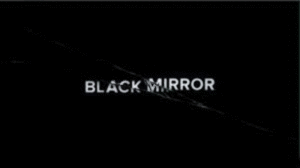A Black Mirror Reflection of the Digital Future
Published on February 14, 2018, at 6:53 p.m.
by Skylar Spencer.
What can be found on every wall, inside every palm and on every desk? A Black Mirror — the frigid and glossy screen of your computer, TV, smartphone and tablet. At least, that’s what Charlie Brooker believes, the creator of the anthology series “Black Mirror.”

I’m sure most of you have either watched or heard of “Black Mirror” by now. The series features stand-alone episodes that explore a twisted, high-tech dystopian universe where humanity’s greatest breakthroughs and darkest instincts collide. Although fictitious, the series prompts its viewers to snap out of the complex trance of innovation, and consider, just for a moment, the potential implications of technology in the long run.

Digital change is here, and it’s rapidly evolving whether we like it or not. Technology has become a fast-paced medium for communication, and as communicators, it’s our job to evolve with it. But with new platforms and ways to reach audiences, we also have to question — what does it mean to act with integrity in the digital landscape?
Although we may not find ourselves facing automated space enclosures, implanted memory grains or social media rating systems, “Black Mirror” offers us public relations pros, communication specialists, journalists and society as a whole, several insights into the uncharted digital territory of our future.
People FIRST, technology second.
As PR practitioners, we mustn’t forget the core concept of relationship building. Relationships are built on authenticity and mutual understanding, so what type of relationships are formed when organizations put tech first?
Consider “Nosedive” from the “Black Mirror” series — the episode situated in a world where a person’s life depends on a social media rating system (Impossible, right? Think again … China is implementing a similar system by 2020). As a person’s rating significantly affects their materialistic status, this system literally creates artificial relationships. While unlikely in America, it still poses a reminder for us to never forget what’s most important as we dive deeper into the digital transformation: the public.
With new technologies come new responsibilities.

Enter “Hated in the Nation” of the “Black Mirror” series — Mechanical bee drones go horribly wrong when its hidden (keyword ‘hidden’) surveillance system is hacked, leading to a “#DeathTo” “Game of Consequences” on social media. The twist? Whoever uses the hashtag is targeted, resulting in a colossal massacre of 387,036 people. “Hated in the Nation” is straightforward: Everyone’s somewhat responsible, and thus no one can be put on trial.
From technology guidelines to ethical norms, one thing is clear: A wide scope of rules still needs to be defined. Defining the rules for new digital industries is the new corporate responsibility — and with great responsibility comes great opportunity. Companies such as Google, Amazon, Facebook, IBM and Microsoft are already working toward such unity. Despite being competitors, they’re cohesively working to create a new standard of ethics for advancements in the artificial intelligence industry. Through operating with a “people first” mentality, and establishing a set of recognized ground rules, we may just avoid a robotic-bee annihilation.
Let’s talk digital trust.
“Hated in the Nation” depicts mechanized bees that were used to spy on the civilian population; “Men Against Fire” features soldiers being implanted with augmented reality tech, inducing them to unconsciously kill the innocent; “Playtest” infuses virtual and AR into a game that goes violently too far for its playful volunteer. These three episodes, among others, raise a few questions worth considering as we head further into the digitized future: Where was the transparency? What happened to instilling trust?
Trust is a fundamental criterion that all organizations must earn, and not just by words. But how can we as communicators establish trust in the digital landscape? Honest transparency. Honesty is one of the core values of the PRSA Code of Ethics, and as PR practitioners, we are expected to uphold this pillar “to the highest standards of accuracy and truth” in communicating with the public.
So, what does the future hold for us communicators? I don’t know about you, and Charlie Brooker may disagree, but I see a future that leverages the most sophisticated and unimaginable forms of technology to empower our society, and more importantly, humanity. I don’t see a cold, dystopian world controlled by robots.
Instead I see collaboration between all industry sectors to instill a sense of human morality first, setting the guideposts for the new digital trail — from ethical standards to industry best practices — and finally, establishing digital trust through transparency. Unless, we’re all really trapped in a “White Bear” type of situation; then things could get ugly.




